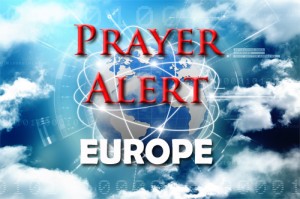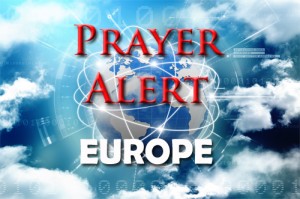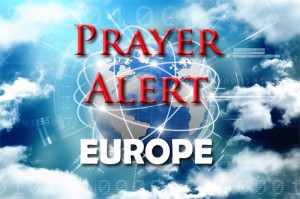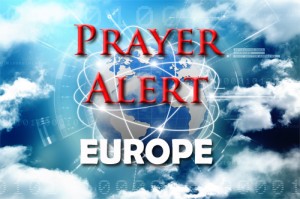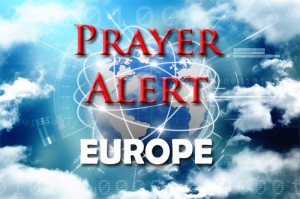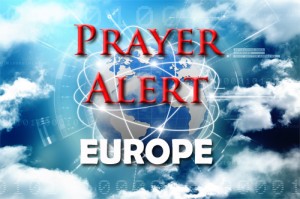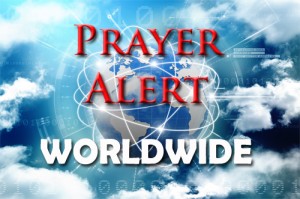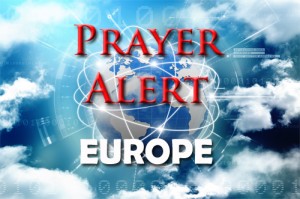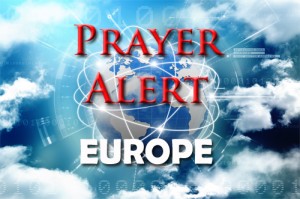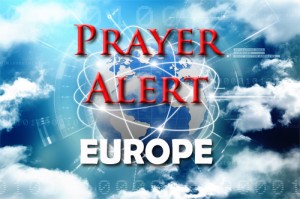Displaying items by tag: Europe
Germany: stabbing escalates
A recent surge of violence perpetrated with knives across Germany draws attention to the deterioration of security in the country. People armed with knives, axes and machetes have wreaked havoc across Germany; committing jihadist attacks, homicides, robberies, raids, sexual assaults, honour killings and other violent crimes. Knife violence occurs all over the place, and many people feel that danger lurks everywhere, with little or no public security. The police admit that they find it difficult to maintain order, day and night; they are being accused of not reporting many crimes, to try not to ‘disturb’ public opinion. However, reports indicate that in 2017 incidents of violence with knives and stabbings will reach record levels.
Austria & Germany: Coalitions
Austrian far-right Party, FPO is talking with conservative party, OVP, and people have been protesting against the administration including FPO. FPO had led in the polls for two years - then Mr Kurz became chairman of the ÖVP and his charisma kept FPO (with neo-Nazi roots) from running the country. To govern Mr Kurz needs a coalition partner, and the FPÖ, was his first choice. Coalition talks began three weeks ago but nothing has yet been agreed. In Germany, coalition talks collapsed after a deadlock on migration and energy caused the FDP to quit negotiations. Angela Merkel faces either forming a minority government, or fresh elections. Many are wondering, ‘Is Europe fending off a populist uprising?’ see https://www.theguardian.com/world/2017/nov/19/german-coalition-talks-close-to-collapse-angela-merkel
Mediterranean facing security challenges
This year, 2,800 refugees and migrants have perished in the Mediterranean, while countless others died crossing the Sahel desert. The UN Secretary General said there is displacement, and discrimination against refugees and increasing xenophobia that needs addressing. There is a need to re-establish the integrity of the refugee protection regime on both sides of the Mediterranean. Challenges facing the region include illicit trade in narcotics, weapons and petroleum products, refugees and migrants managed by smugglers, traffickers, and maritime pirates. (The Mediterranean Sea provides economic resources of hydrocarbons, fish stocks and invaluable trade routes.) But its benefits depend on stability and security cooperation.
Council of Europe (CoE)
If we want to pray for all in authority over Europe we should look at the CoE. It is an institution of 47 nations separate from the EU with headquarters in Strasbourg, France. It’s a parliamentary assembly of delegates from national parliaments and has its roots in being one of the first attempting to reconstruct Europe after WWII. It has the oversight of the European Court of Human Rights in Strasbourg and through the work of their Parliamentary Assembly of the Council of Europe (PACE) it oversees subjects as diverse as non-discrimination, protection of children's rights, election observation and upholding freedom of expression. Our nation’s delegates to the PACE can be found at http://www.assembly.coe.int/nw/xml/AssemblyList/AL-XML2HTML-EN.asp?lang=en&XmlID=NationalDelegation-uk
Canopy of prayer over Europe
One meaning of ‘canopy’ is a gold interwoven piece of silk, which can be used as a roof over a royal throne for the glory of the King. Jewish couples are married under a chuppah (canopy). Imagine the image of the Bride of Christ in Europe meeting her Beloved Lord and King under this canopy of prayer. Intercessors with a heart for Europe have been receiving a regular email containing up-to-date information on events and situations that need God's attention. People from all European nations, all denominations, churches, ministries, and age groups are invited to join them and stand in prayer for Europe. The commitment is to pray for Europe for fifteen minutes each week. They will be guided by an online prayer letter as they join with many others. The vision is for a 24/7 canopy of prayer, intercession, and blessing over Europe.
France: Muslims clash with lawmakers in Paris
Muslims have been praying outside in the streets of Clichy since the closure of a place of worship in March. Now a Muslim association is taking legal action against French lawmakers after clashes with worshippers on Paris streets. The lawmakers want to stop street prayers, saying it is an unacceptable use of public space. Carrying a giant banner and singing the national anthem, the protesters tried to push past a police cordon. The president of the region said the state must face its responsibilities and help to find a solution, but not at any cost. France needs decent places of worship for everyone, but at the same time people must live in a respectful manner with each other. The growth of Islam in recent decades has prompted calls for limiting its public visibility.
Russia: radioactivity and chemicals
A mysterious radioactive cloud that passed over 28 European countries recently was first detected over Italy. France’s radioprotection institute has now detailed its findings, saying the origins of the cloud came from ‘somewhere in South Russia’. The area in question has nuclear facilities, including one that converted nuclear fuel into weapons during the Cold War. Even after the location was identified, it is unclear how the radioactive cloud appeared, as there was no apparent accident at any of the nuclear facilities and it was not an ‘authorised release’. Meanwhile, on 16 November, Russia and the USA failed to resolve a dispute over extending the mandate of a UN-backed investigative team which blamed Syrian forces for a chemical weapons attack in April that killed over 80 people. See
Intercessor Focus - Brexit
At the time of writing, ambassadors from the 27 other EU member states have been discussing how to negotiate the transition that will start when Britain parts with Brussels in 17 months’ time. Insiders say the opinion is that London will fail to meet the EU conditions for opening further talks on 14 December, with Germany and France insisting Theresa May must first agree in principle to pay a multi-billion-euro exit bill to Brussels. We can pray for clarity in all decision-making, and for Godly decisions which will turn the situation around. We pray for those who work in government, finance and the law to work towards practical solutions according to God’s instructions ‘to acknowledge bills that need payment, to fulfil all financial commitments and use honest scales and weights’ (Proverbs 16:11).
(Linda Digby, Prayer Alert)
Europe: complaints, confusion, confrontation and change
In Britain, we see chaos and confusion surrounding government. It is not just in Westminster; Brussels has many political, legal, commercial and ideological ‘unknowns’. Throughout Europe there are signs of growing discontent and dissatisfaction with policies and attitudes that have been followed by traditional leaders for decades. In Catalonia, independence protesters brought areas to a standstill as they objected to the incarceration of former nationalist ministers and vice-president Oriol Junqueras. Young people are rising up to challenge traditional authority. France, Austria, Italy and the Czech Republic have all voted for young leaders. Austria voted in October for 31-year-old right-wing Sebastian Kurz, who is talking to the far-right Freedom Party about forming a government. 30% of the Czech Republic voted for anti-establishment leader Andrej Babis, and Germany’s far-right Alternative for Germany (AfD) party won 94 seats in the Bundestag.
Spain: depths of division
Half the electorate in the wealthy north-east region of Catalonia oppose secession from Spain, but recent events have brought the long-running debate to a head. A poll showed unionist parties winning 43.4% support and pro-independence 42.5%. Madrid called the situation ‘the country’s worst political crisis in four decades’. The chaos has caused an exodus of businesses, about 1/5th of Spain’s economy. Tourism has dropped and markets go up and down, reflecting fast-moving developments. After the Catalan leader Carles Puigdemont held an independence referendum despite Madrid's opposition, the constitutional court declared the vote illegal. Spain's central government has now taken direct control of Catalonia. Many believe that it might look over, but the Spanish region’s independence bid has long-lasting repercussions. See
